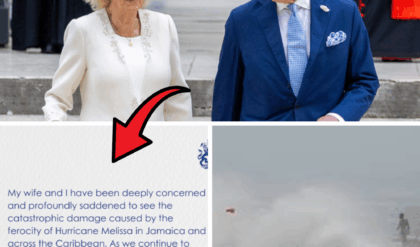As of 3:00 PM +07 on Tuesday, July 29, 2025, the Marvel Cinematic Universe (MCU) stands at a pivotal moment with the release of The Fantastic Four: First Steps on July 25, 2025, marking the launch of Phase Six and the culmination of the Multiverse Saga. This saga, spanning from Avengers: Endgame (2019) to the upcoming Avengers: Secret Wars, has redefined the MCU with its exploration of alternate realities, shifting villains, and the integration of long-awaited characters like the Fantastic Four. For fans preparing to dive into this retro-futuristic adventure, here’s a comprehensive recap of the Multiverse Saga, highlighting key events, characters, and connections that set the stage for this groundbreaking film.
The Dawn of the Multiverse
The Multiverse Saga kicked off with Avengers: Endgame, where the surviving heroes reversed Thanos’ snap, only to face a time-traveling Thanos from 2014. The film’s use of the Infinity Stones to restore half of all life introduced the concept of timeline branching, a seed that blossomed in subsequent projects. Loki (2021) on Disney+ expanded this idea, introducing the Time Variance Authority (TVA), which polices the Sacred Timeline to prevent multiversal chaos. Tom Hiddleston’s Loki, now a variant working with the TVA, emerged as a central figure, his actions in Loki Season 2 (2023) stabilizing the multiverse by creating a new timeline anchored at the end of time.
What If…? (2021-2024) offered a playful yet critical look at alternate realities, from Peggy Carter as Captain Britain to a zombie apocalypse, laying the groundwork for multiversal storytelling. On the big screen, Spider-Man: No Way Home (2021) brought this to life, with Doctor Strange’s spell pulling in Tobey Maguire and Andrew Garfield’s Spider-Men alongside villains from their universes. The film’s emotional resonance and box-office success—grossing over $1.9 billion—signaled the multiverse’s commercial viability, though it also raised questions about narrative coherence.
The Rise and Fall of Kang
The saga’s initial arc centered on Kang the Conqueror, introduced in Loki Season 1 as He Who Remains, a variant controlling the multiverse’s timelines. Ant-Man and the Wasp: Quantumania (2023) brought Jonathan Majors’ Kang to the forefront as the Quantum Realm’s ruler, setting him up as the Multiverse Saga’s Thanos equivalent. However, his plans unraveled with the Avengers’ victory in Quantumania, and Majors’ real-world legal issues led to his departure from the MCU by late 2023. This pivot shifted the saga’s focus, with Avengers: Doomsday (2026) now featuring Robert Downey Jr. as Doctor Doom, a move that has sparked both excitement and skepticism about the franchise’s direction.
Key Players and Teams
The Multiverse Saga has expanded the MCU’s roster, introducing new heroes and redefining old ones. The classic Avengers—Iron Man, Captain America, and others—have largely stepped back, with Endgame serving as their swan song. A new generation, dubbed the “Next Avengers,” has emerged, including Morgan Stark (Tony’s daughter), Toussaint (T’Challa’s son), Love (Thor’s daughter), Skaar (Hulk’s son), and Phyla-Vell (adopted by Drax). These young characters, featured in projects like Eternals (2021) and Guardians of the Galaxy Vol. 3 (2023), hint at a future team, though their youth delays immediate action.
Meanwhile, the original Avengers’ remnants—Scarlet Witch, Doctor Strange, and Captain Marvel—have taken center stage. WandaVision (2021) and Doctor Strange in the Multiverse of Madness (2022) explored Wanda Maximoff’s descent into the Scarlet Witch, her destruction of the Darkhold’s multiversal temple, and Strange’s battle with a variant of himself. The Marvels (2023) saw Carol Danvers, Monica Rambeau, and Kamala Khan teaming up, with a post-credits scene teasing the X-Men via Kelsey Grammer’s Beast. Deadpool & Wolverine (2024) further blended universes, with Ryan Reynolds’ Deadpool and Hugh Jackman’s Logan facing the TVA, cementing the multiverse’s chaotic integration.
The Fantastic Four’s Arrival
The Fantastic Four’s debut in First Steps is a landmark, marking the first time Marvel Studios fully controls the team since Disney’s 2019 acquisition of 20th Century Fox. Set in Earth-828, a 1960s retro-futuristic world, the film stars Pedro Pascal as Reed Richards/Mister Fantastic, Vanessa Kirby as Sue Storm/Invisible Woman, Joseph Quinn as Johnny Storm/Human Torch, and Ebon Moss-Bachrach as Ben Grimm/The Thing. Directed by Matt Shakman, the story skips the origin tale—assuming the team has had powers for four years—and pits them against Galactus (Ralph Ineson) and his Herald, Silver Surfer (Julia Garner).
This setting explains their absence from earlier MCU events like Thanos’ attack, a deliberate choice by Shakman to avoid narrative inconsistencies. The film’s standalone nature, ending with the team still on Earth-828 and a post-credits tease of Doctor Doom (Robert Downey Jr.), suggests a gradual integration into Earth-616, the main MCU timeline, likely for Avengers: Doomsday. The 1960s aesthetic, inspired by Jack Kirby’s comics, offers a fresh visual palette, though some fans question how this isolates them from the broader saga’s continuity.
Multiversal Connections
The Multiverse Saga’s complexity lies in its crossovers. Doctor Strange in the Multiverse of Madness introduced Earth-838’s Illuminati, including Patrick Stewart’s Professor X, hinting at the X-Men’s eventual arrival. The Marvels’ post-credits scene and Deadpool & Wolverine’s TVA antics further weave Fox’s X-Men universe into the MCU, with Avengers: Secret Wars (2027) expected to resolve these threads. The shift from Kang to Doom, teased in Thunderbolts’ post-credits with the Fantastic Four’s spaceship entering Earth-616, signals a narrative pivot, possibly exploring Doom’s Latverian roots or his rivalry with Reed Richards.
Other projects, like Moon Knight (2022) and Ironheart (2025), have added layers, with Marc Spector’s dissociative identity disorder and Riri Williams’ tech innovations hinting at future alliances. The saga’s focus on alternate realities—seen in What If…?’s diverse worlds—prepares audiences for First Steps’ unique setting, though its lack of immediate multiversal travel has surprised some who expected a quicker MCU integration.
Challenges and Critiques
The Multiverse Saga has faced criticism for overstretching its narrative. Films like Eternals (51% on Rotten Tomatoes) and The Marvels (62%) struggled with pacing and coherence, while Ant-Man and the Wasp: Quantumania (46%) disappointed with its Kang buildup. Fantastic Four: First Steps has bucked this trend, earning praise for its standalone story and 87% critic score, though some argue its Earth-828 isolation feels detached from the saga’s momentum. The delay of Doomsday and Secret Wars by six months each has also fueled concerns about Marvel’s planning, with some fans feeling the franchise has lost its Infinity Saga magic.
Yet, the saga’s ambition is undeniable. It has introduced diverse characters—Phastos (gay), Kingo (Indian), and Shang-Chi (Asian)—broadening representation, though debates persist about tokenism. The pivot to Doom, a fan-favorite villain, offers hope, with Downey’s return generating buzz, though it raises questions about recasting dynamics post-Endgame.
Looking Ahead
First Steps sets the stage for Phase Six, with Avengers: Doomsday and Secret Wars promising a multiversal climax. The Fantastic Four’s journey from Earth-828 to Earth-616, likely via Doom’s interference, could unite them with the Next Avengers and X-Men teases. Michael Giacchino’s score, blending 1960s optimism with heroic tones, enhances the film’s retro vibe, released as a single on June 5, 2025. For new viewers, the film’s accessibility—requiring little prior knowledge—invites entry, while longtime fans await connections to unfold.
The Multiverse Saga, for all its stumbles, reflects Marvel’s evolution, balancing legacy with innovation. As First Steps unfolds, it’s a reminder of the MCU’s ability to reinvent, even as it navigates the multiverse’s infinite possibilities. Whether this saga ends as a triumph or a cautionary tale, its impact on superhero cinema is already profound, with the Fantastic Four’s debut a bold step into the unknown.





